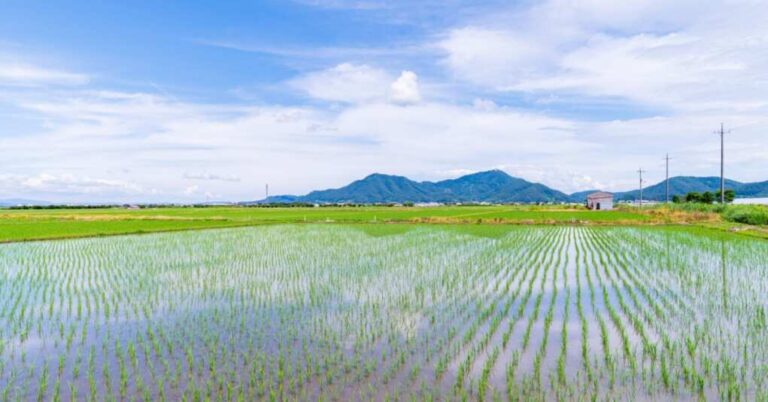
Japan’s rice farmers, many of whom are nearing retirement, are facing an unprecedented challenge: rising temperatures are compromising the quality of their crops, putting the nation’s staple food at risk. As temperatures climb, rice plants are suffering from poor growth and lower nutritional value. For Japan’s aging farmers, adapting to climate change is not only difficult but increasingly unaffordable, pushing some to consider abandoning rice altogether.
Rice is a cultural and economic cornerstone in Japan, but climate change is hitting the industry hard. Prolonged heatwaves and irregular rain patterns are damaging rice fields, with farmers reporting decreased yields and reduced quality. “We’ve never seen this kind of extreme weather before,” says Hiroshi Tanaka, a 72-year-old farmer from Niigata Prefecture. “Our rice used to thrive here, but now the heat is making it harder to grow the high-quality crop we’re known for.”
Farmers are attempting to adapt by planting heat-resistant strains and modifying water usage, but such efforts require time and investment. The Japanese government has offered some assistance, but critics argue that the support is insufficient for farmers already struggling with high costs and shrinking profit margins. Many younger Japanese are opting for city life, leaving fewer replacements for aging farmers, further complicating the industry’s future.
With the rice industry under threat, Japan may soon face a cultural and economic shift. If conditions worsen, the country might need to rely on imported rice — a hard pill to swallow for a nation where rice is intertwined with identity. The future of Japan’s rice farmers serves as a warning of the toll that climate change can exact on traditional industries, and the difficult choices societies must make in its wake.
